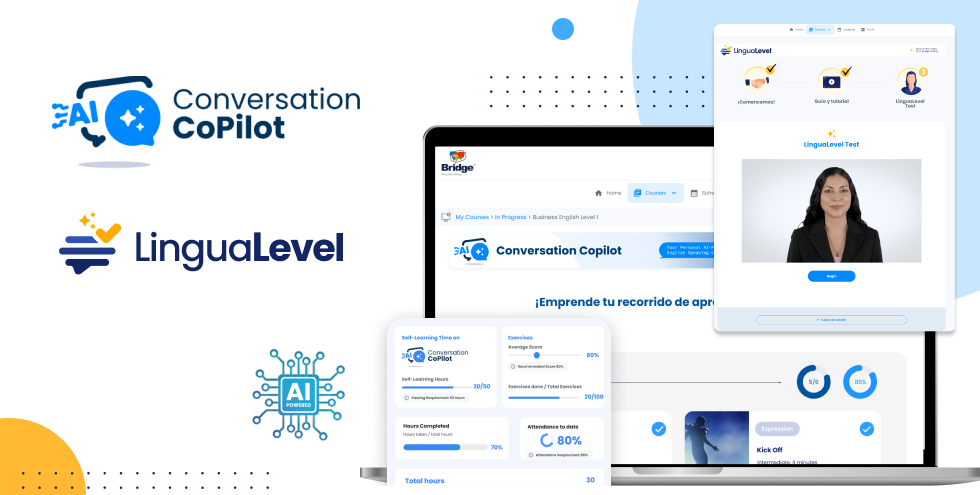A new whitepaper titled “LangTech in the AI Era,” by experts Alex Asher and Brian Kantt, provides insightful industry analysis on the impact of AI, especially post-ChatGPT, on technology-enabled language learning.
Compiling findings from interviews with leaders across dozens of language learning companies, the paper examines crucial questions surrounding AI’s transformative potential as an instructional tool.

Here are some of the key takeaways:
- Companies’ adoption of AI tutors is growing, with dozens of language apps releasing AI tutors in 2023. However, there is little evidence that learners are abandoning human teachers for AI.
- Teachers mainly use ChatGPT to save time creating materials, but few schools are radically personalizing curricula with AI yet.
- Machine translation is advanced, but demand for language learning still grows. Human connection matters for motivation and progression.
- Fundraising has surged for language companies using AI, but the costs of personalization at scale are still prohibitive.
- The novelty of AI conversations wears off for some learners over time, and AI chatbots currently lack critical capabilities like a human’s accountability.
Also referenced by Asher and Kantt is how AI technology is already making inroads with major established language learning companies and startups alike, in the form of conversational practice, pronunciation evaluation tools, adaptive assignment creation, and other innovative applications that personalize the learning experience and enhance engagement through real-time feedback and interactive content.
Examples of this technology include:
- Speak – This app provides instant feedback to learners on their speaking using AI. Speak has raised $16 million, led by OpenAI, to fuel the expansion of its AI tutor.
- ELSA – This English language learning platform has raised $23 million to use AI to help learners improve their pronunciation.
- Preply – Preply has raised $70 million “to scale the experience” of its AI offerings. It aims to leverage AI to enhance its live tutor classes.
- Memrise – Memrise has launched an AI language tutor called Membot.
- Duolingo – Duolingo has created the virtual assistant Duolingo Max.
- EnglishCentral – This company introduced an AI language tutor called MiMi, built on ChatGPT, for English learners.
If you want to learn more about how to use AI for hyper-personalization of classes, read our recent article “Hyper-Personalize Your Business English Teaching With AI”
At Bridge, our “Teacher-Powered” approach underscores our belief in the irreplaceable value of human accountability and connection, a sentiment echoed in the recent findings highlighting the limitations of AI chatbots in these areas.
Nevertheless, we recognize the potential of AI in enhancing educational experiences and are excited to announce the upcoming launch of our AI-assisted products, LinguaLevel and Conversation CoPilot, in the coming weeks.
Learn more about “Using AI Tools for English Language Proficiency Placement, Leveling, and Progress Monitoring”.

For those interested in learning more about the frontier of AI in language education straight from industry experts, Alex Asher, CEO of LearnCube, and Brian Kantt, Director at Iboux Academy, highly recommend downloading and reading the full whitepaper, which you can find at https://go.learncube.com/langtech-in-ai-era-whitepaper

